Sign and Symptoms of Depression
Hello i’m whitney bishop and i’m the tms coordinator here at east side tms and wellness center in renton washington october is national depression awareness month and this month we want to bring you guys information on depression what are some signs and symptoms that someone might experience when they’re in a depressive episode how tms helps with depression and how to get started with tms therapy when a patient first comes to our clinic for an evaluation with our provider or when they’re first starting their treatment we like to discuss with them kind of how they started noticing their depression and how it has progressed to where it is when they first start their treatment for each patient or person that might be experiencing depression your signs and symptoms of it could vary um there’s a list of different signs and symptoms of depression and it doesn’t mean you’re going to experience all of those or you might have one that maybe isn’t on every list when you look it up and so you might think maybe i’m not having depression maybe it’s something else so it’s important to notice changes maybe in your behavior and how you’re feeling about things and to seek help or evaluations from a behavioral health professional if you think that there is a possibility that maybe you are suffering from depression a lot of patients that come into the clinic they notice first kind of small little changes in their behavior how they react to things or how they’re feeling a lot of patients will have a general feeling of sadness not necessarily from any one event but they just they feel sad and they also might notice that small little challenges challenges in the day that they have kind of um on the more extreme end of reactions to those so maybe something small happens in their day and they feel like they’re going to cry and they realize that that that’s kind of a lot for what’s happening for this situation but they can’t help it um they might have feelings of hopelessness or they might start to worry about things a lot but not take the steps to deal with any issues that they’re worrying about a lot of times patients will notice that a hard time focusing on activities that they could do before so let’s say in their work day before they could get all their tests done that they need to in the day and then all of a sudden even the smallest task they can’t stay focused on it they can’t complete it it seems like it’s a really big task even though it’s something small and they might start putting work off or putting off activities or things they need to do at home a lot of people start to notice that they’re no longer enjoying activities that they used to really enjoy could be things like if they normally like to play sports or go to the gym do different types of artwork read books um social activities those type of things let’s say that was something that brought them a lot of joy and it was something they did regularly and they just love doing those things all of a sudden they start to notice their interest in those activities is declining they don’t find them enjoyable they might start avoiding doing those activities so you take a component of your life that previously was something that brought a lot of joy or reduced stress levels and you kind of take that away that can also cause you know those types of feelings of sadness hopelessness things like that and you’re just not enjoying it another thing that a lot of people might experience is with social interactions whether it be at work with friends with their family at home maybe they’re finding those a little more difficult um either someone can find it really draining trying to keep a conversation because they’re having a hard time focusing on activities so they tend to wander or they’re kind of as they’re talking to someone they’re thinking i don’t want to be doing this right now i don’t want to talk to you but i will um they might find social activities to actually be very isolating and have a sense of loneliness sometimes they might feel like i’m the only one that feels like this and you know i’m looking at all these people in the room and everyone’s smiling and laughing you know should i be putting on a happy face well i don’t you know why do i feel so sad and um that could be a very very lonely feeling to have in a room um especially if no one else around you or in your peer group knows that you are experiencing those symptoms um a lot of patients might start to feel really tired and drained and not necessarily from the lack of sleep it could be that they slept fine but they’re waking up feeling exhausted and thinking about what they need to do in their day just seems like a huge mountain to climb with the amount of energy and feelings that they have sometimes when you’re experiencing depression you might notice a disruption in your sleep pattern to where you’re finding it really difficult to get a restful night’s sleep as well a lot of times patients might feel kind of the sense that they have to keep it to themselves and no one else understands what they’re going through and they’re just kind of not enjoying their daily activities and it can get to the point where just getting out of bed in the morning it can seem like an impossible task for someone that’s experiencing a major depressive episode if you think that maybe a loved one or a friend might be experiencing depression or if you yourself feel like you might be displaying signs of depression please give our clinic a call at 425-919-6826 or you can visit our website at eastsidetmswellness.com don’t forget to give this video a big thumbs up and share it if you find the information helpful thanks so much.


